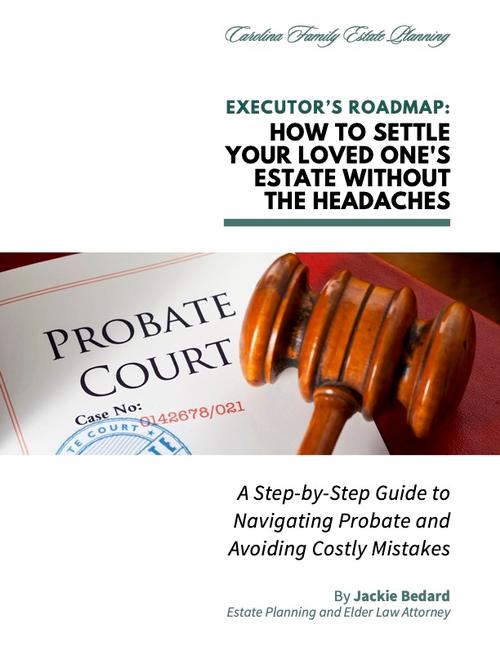You might think that once the North Carolina courts settle an estate, it's closed for good, and the division of assets is complete. However, that is not always the case. In this article, we’ll explain some things you need to know about the probate process in North Carolina, including how to reopen a closed estate.
What Is The Probate Process And What Does It Entail In North Carolina?
The probate process is a legal proceeding to settle an individual’s estate after they die. The process ensures that the deceased person's beneficiaries receive designated assets, including valuables, real estate property, belongings, bank accounts, etc.
In addition, the probate and estate administration process ensures that the representatives (also known as executors or administrators) and the court follow the relevant steps and final wishes of the deceased and that everything occurs in accordance with all state and federal laws.
Can You Reopen Closed Estates In A North Carolina Court?
The short answer is yes. You can reopen closed estates within the North Carolina courts with the help of a probate and estate administration attorney. However, that doesn’t mean that you can randomly decide you want to reopen a closed case.
The courts will only reopen an estate if certain situations arise, such as the ones listed below:
- The estate's personal representative did not perform the necessary acts or wishes of the deceased.
- Additional financial assets or estate assets have come to light.
- Someone wishes to contest the validity of the deceased's will (if they had one).

How Would You Reopen A Closed Estate?
Consider this example: Let's say that your father passed away, and about six months after closing the initial probate process, you found a bank account that you did not know existed. The account balance is around $8,000, and he never listed a beneficiary. Here's how you could reopen probate in the North Carolina courts with the help of your probate lawyer, using our example:
![Form AOC-E-908 | North Carolina Probate-Estate-Trust Administration Lawyer]() First, you need to complete and file the appropriate form, called a Petition and Order to Reopen Estate (Form AOC-E-908).
First, you need to complete and file the appropriate form, called a Petition and Order to Reopen Estate (Form AOC-E-908).
- The form should also list your reasons for wanting to reopen the probate.
- In line with our example, you would include information about the bank account you just discovered.
- Once the court reviews your Petition form, they will issue an order that may require additional paperwork to be filed by you (e.g., an oath form or new application).
- After you have met all the court requirements, you need to open a new estate account and officially collect the newly discovered assets.
- After the assets are officially added to the new estate account, you will need to pay any outstanding expenses or fees. The beneficiaries would then receive their share of the remaining money, which would be split between them in the same manner as the previous probate.
- The last step would be to amend and refile the Final Account form by the new deadline set by the court, with information about the additional assets, fees, and how much each beneficiary received.
- After the court approved the new Final Account form, the estate would be closed once more.
Finding A North Carolina Probate And Estate Attorney Near Me
As you can see, the process of reopening a probate estate is complex, with many different steps and a plethora of paperwork that you must complete correctly and file on time. At Carolina Family Estate Planning in Cary, North Carolina, our attorneys make the probate, estate administration, and trust administration process easier for the North Carolina community.
Call our team today at (919) 443-3035 or fill out our contact form to schedule an estate needs assessment.
Copyright © 2022. Carolina Family Estate Planning. All rights reserved.
The information in this blog post (“post”) is provided for general informational purposes only and may not reflect the current law in your jurisdiction. No information in this post should be construed as legal advice from the individual author or the law firm, nor is it intended to be a substitute for legal counsel on any subject matter. No reader of this post should act or refrain from acting based on any information included in or accessible through this post without seeking the appropriate legal or other professional advice on the particular facts and circumstances at issue from a lawyer licensed in the recipient’s state, country or other appropriate licensing jurisdiction.



